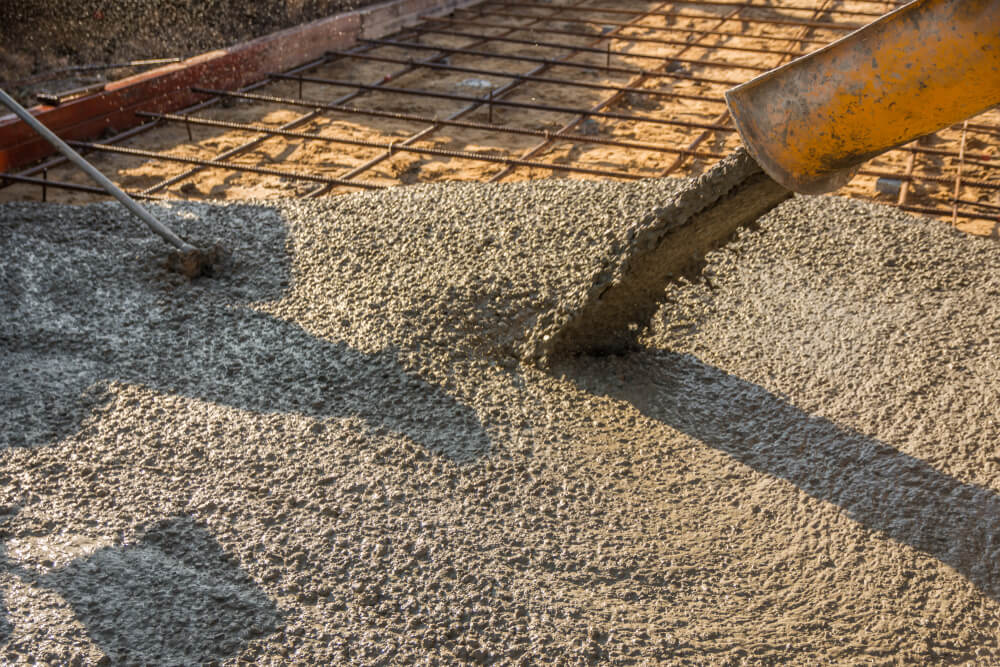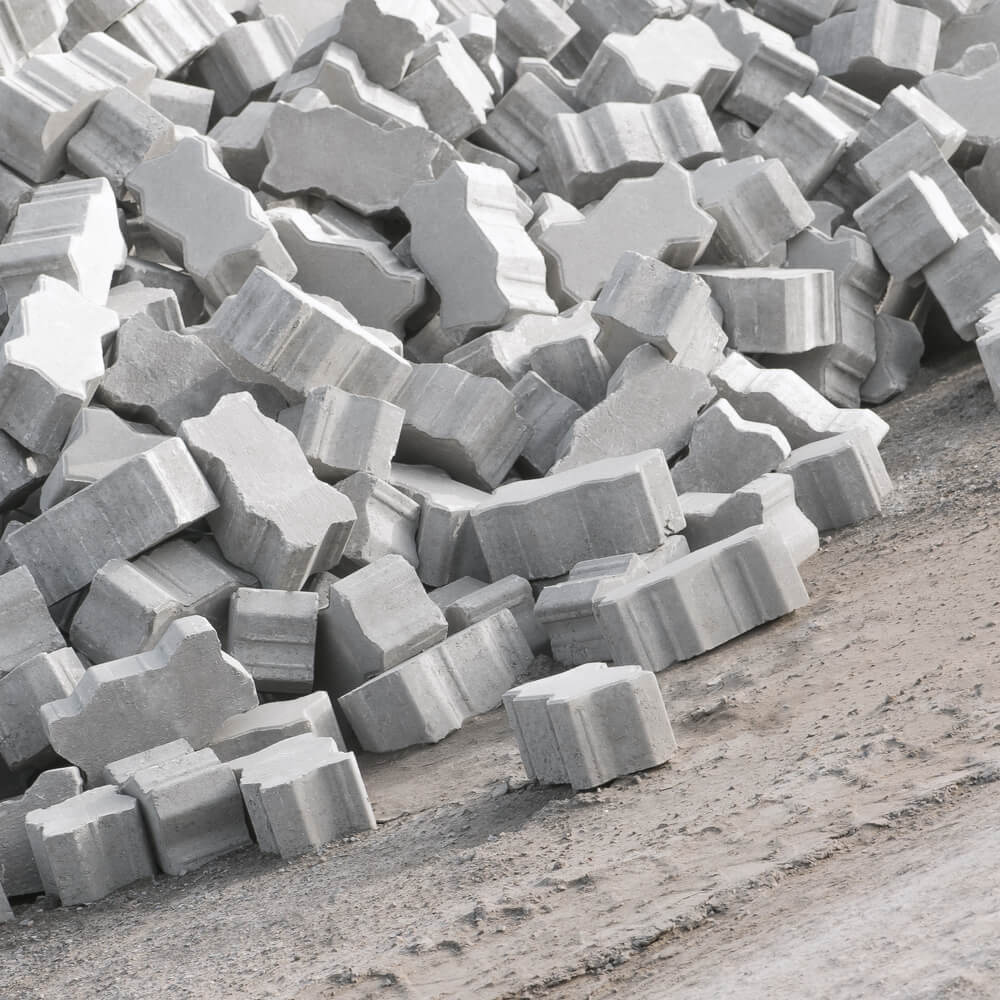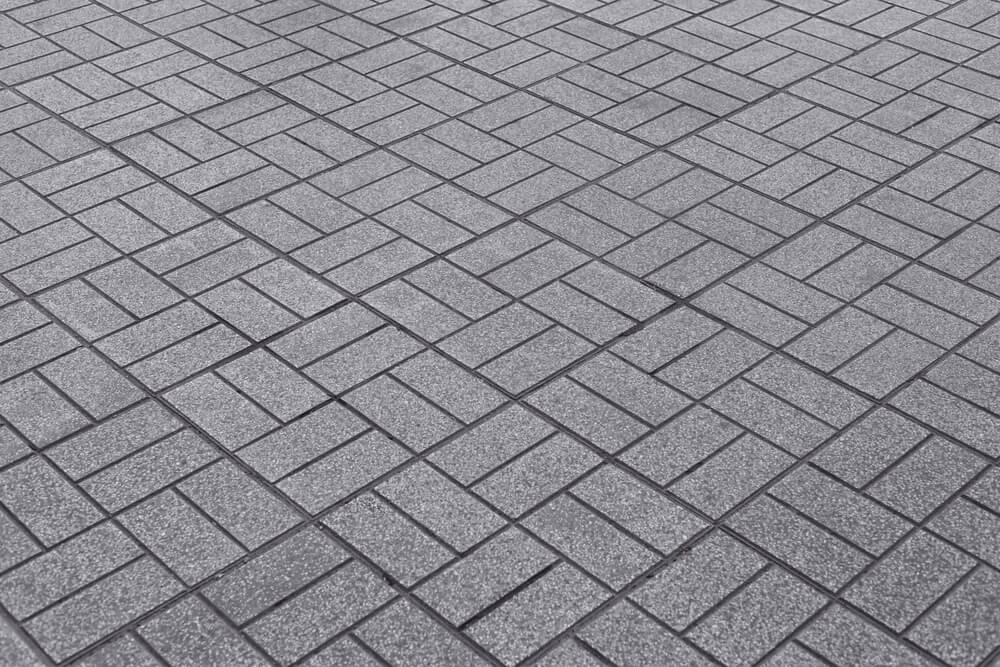When the moment comes to redo your backyard, driveway, or patio, one of the best options you can go for is smartly designed hardscaping. Remodeling a piece of your yard is a tough challenge, especially if you aren’t familiar with the materials you should opt for, designs to go with, and other little nuances that could make or break your remodeling project.
If you’re thinking about using concrete pavers for your project, but you aren’t sure whether it’s the right idea, you’ve come to the right place! We have covered some of the upsides of using concrete pavers, as well as things you should keep in mind if you opt to use concrete pavers for your driveway repair.
What is Concrete?
Before we delve deeper into the subject of pavers, it’s a good idea to learn about concrete itself. So, what is concrete? For the sake of keeping things simple and comprehensive, concrete is a composite material consisting of coarse and fine aggregates bound together with fluid cement. In reaction with water, the cement forms a hard matrix that’s responsible for binding the materials together and creating a durable stone-like material.
As you probably know, concrete is one of the most frequently used building materials. It’s relatively affordable, durable, and reliable, making it sought-after by many homeowners who want to build a solid and reliable project.
You should keep in mind that interlocking and architectural slab are the two main types of concrete pavers. The former is made with a stiff and strong concrete mix, making them thick and perfect for driveways. Conversely, the architectural slab is thin, features no edge spaces, and is thus not suitable for driveways. It’s molded from wet concrete to resemble brick or stone.

Things You Should Know About Concrete Pavers
Now that you’re armed with some rudimentary knowledge about concrete, it’s time to look into some of the things you should know about pavers.
- Endless Design Opportunities
One of the best things about using concrete pavers is the sheer liberty you have to choose colors and shapes to complement the design of your home. In simpler terms, the possibilities are truly endless, and all that’s standing between you and a dream-like driveway or patio are the limits of your imagination.
Concrete pavers are made in different shapes and colors, so it’s pretty easy to come up with a perfect design with little to no effort invested.
- Low Maintenance Requirements
As long as you find a reputable company that installs pavers in South Florida, you shouldn’t have too many issues when it comes to the maintenance of your new driveway. Concrete is known to be durable and reliable, so it rarely requires fixing. A well-laid driveway will rarely shift, crack, or settle under normal conditions.
Typically, all you need to do is rinse it occasionally with a hose or a power wash machine, and that’s it! You may have to remove some weeds or dirt that gets stuck between the joints, although this shouldn’t be an issue if the pavers are properly laid down.
- Easy and Relatively Quick to Install
When compared to other similar materials, concrete pavers are typically the easiest and quickest to install. With that said, this applies only when certified professionals are in charge of the installation as opposed to the owner DIY-ing their way out of the situation.
Essentially, concrete is quite easy to work with, although proper handling requires some knowledge and experience. For instance, how concrete is handled after it is poured is just as important as before because concrete cures. It’s also important to point out that concrete is not the same as mortar since it’s a building material rather than a bonding agent.
- Exceptional Durability
Another great thing about concrete is its exceptional durability. In fact, there are some buildings made of concrete that are hundreds if not thousands of years old, so it’s pretty safe to say that concrete can withstand the test of time. Furthermore, pavers can survive dramatic oscillations in temperature without suffering any damage. That means concrete pavers in Alaska feature the same resilience as pavers laid in Miami. Driveway pavers also offer better traction than poured concrete.
- How Much Concrete Do I Need?
This is usually the number one question people ask when they are considering the use of concrete pavers. However, the answer depends on a plethora of factors, including the thickness of concrete, the size of your driveway, type, and much more.
Fortunately, you don’t have to worry about this particular issue as long as you order ready-made concrete pavers. The reason is pretty simple – concrete pavers are a finished product; you don’t have to cast them yourself. In case you need to calculate this step for whatever reason, we strongly recommend you to use an online concrete calculator. There are dozens if not hundreds of them online, so it shouldn’t be too hard to find one to use.
- Have Some Extra Pieces Ready
If you’ve decided to redo your driveway with concrete pavers, make sure to have a couple of extra pieces stored somewhere safe. The reason for this is pretty simple – you will always have a couple of extra pieces on hand to replace damaged tiles. Even though we said that concrete is one of the most resilient materials out there, it can still crack or get chipped due to many reasons. In order to be safe, keep a couple of extra pavers on the side, and you won’t have to think about potential issues.

DIY or Hire a Company?
This is yet another tough question to answer, but in general, it’s typically better to let the professionals handle the business. With that being said, you could DIY your way out of the situation, but only if you have previous building experience and are well-aware of the protocols that have to be met in order to guarantee a quality project.
DIY endeavors are usually okay for smaller projects, like paving a small corner of your backyard or patio. While they do require some previous experience, smaller paving projects are relatively easy to fix if anything goes wrong. Conversely, large projects like the complete remodeling of your driveway should always be done by a team of professionals who know how to handle concrete. If you opt for a DIY route on a large project and mess something up during installation, it’s going to significantly affect your budget and you’ll end up hiring a company anyway.
Have you learned something new about concrete pavers? Do you have any experience with your own projects? Leave us a comment and let us know about your endeavors! If you’d like to read more about the behavior of different materials, methods to use when remodeling your yard, and similar subjects – don’t hesitate to read some of our other articles!




